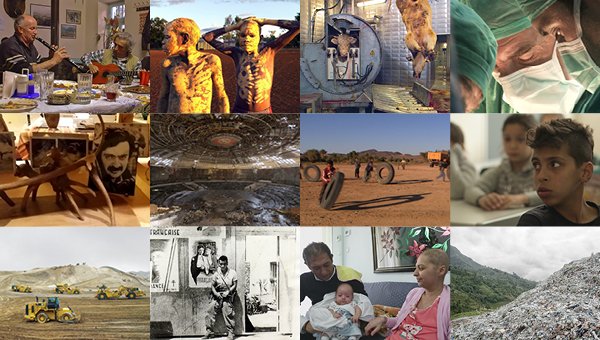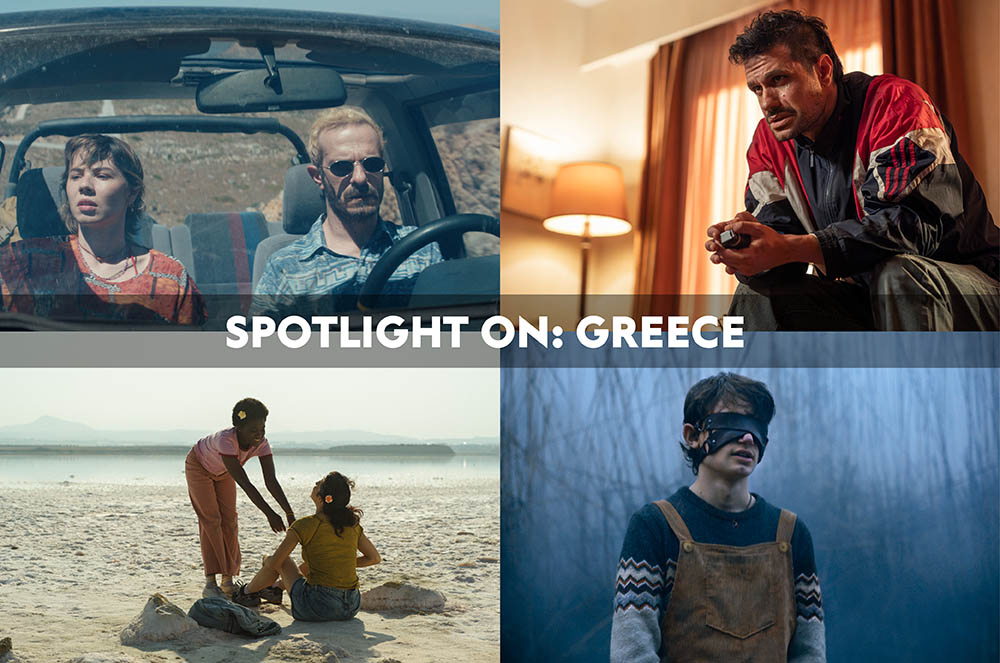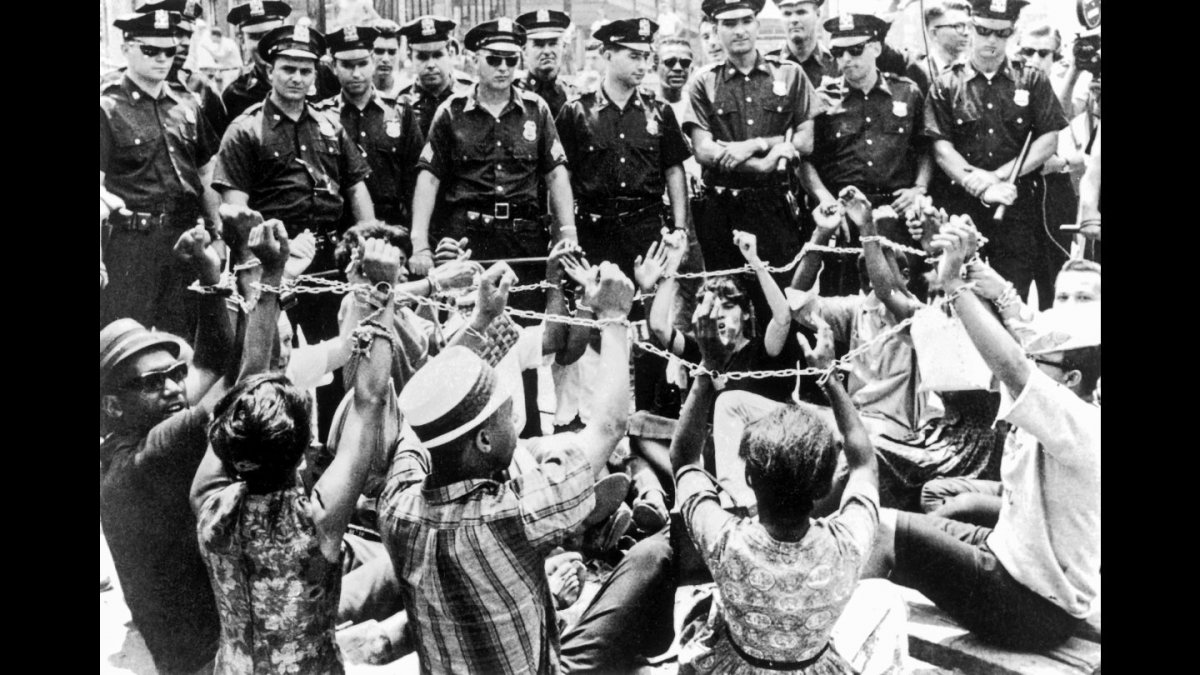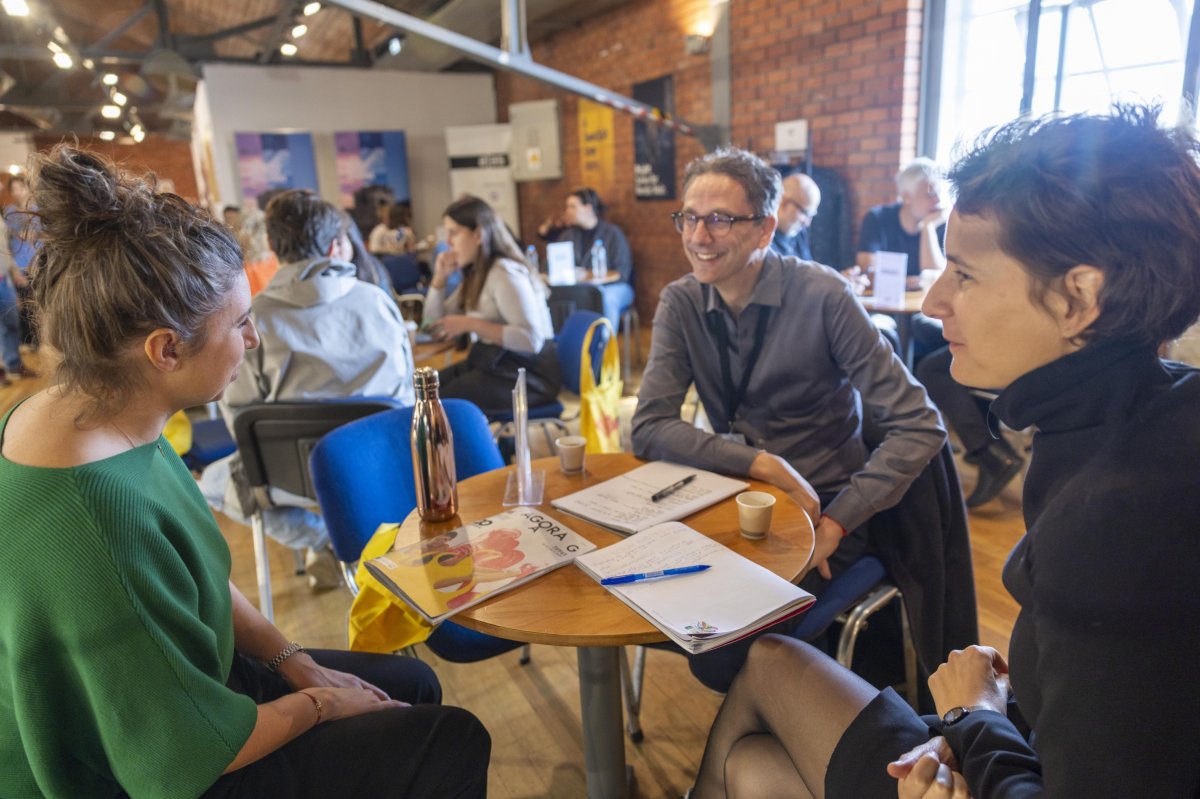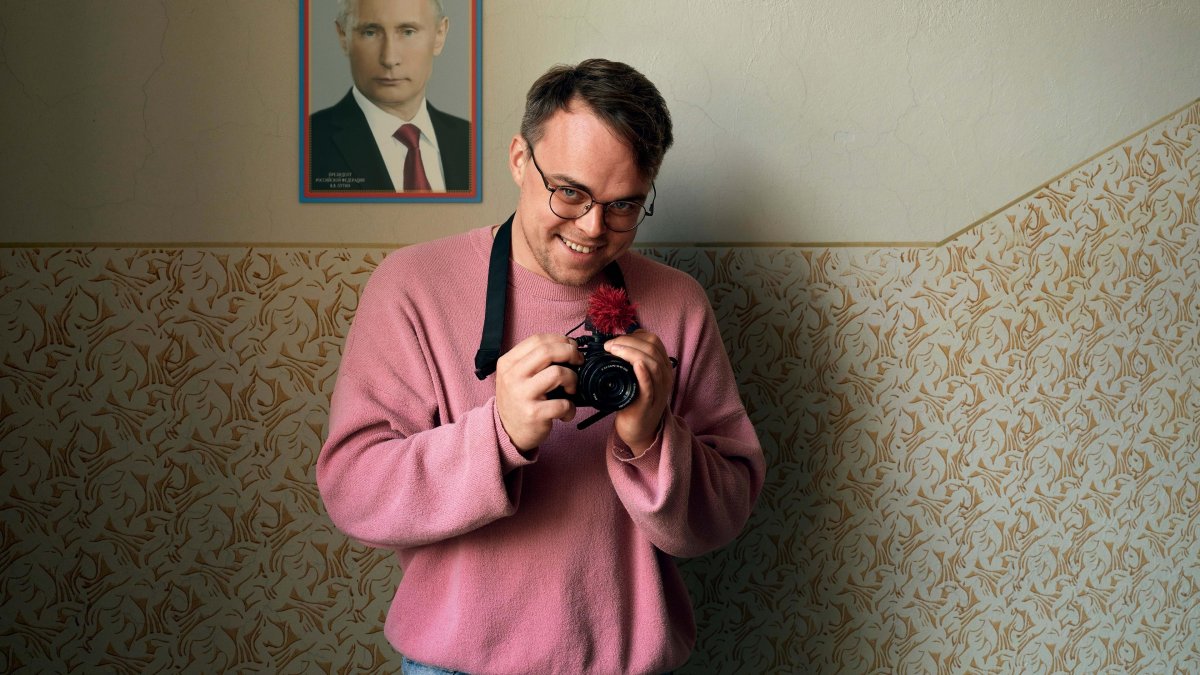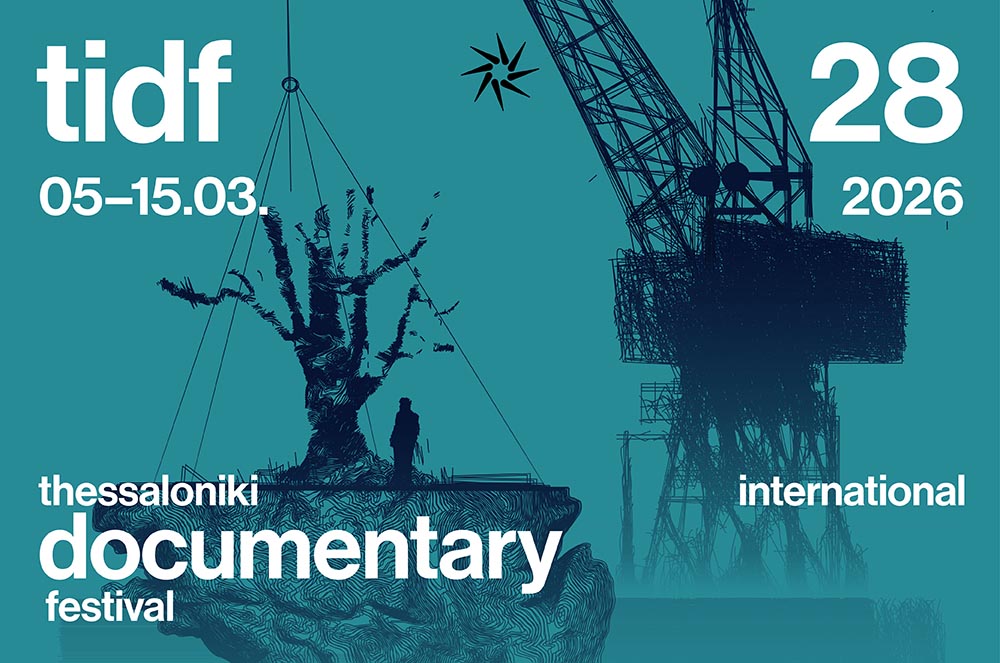25th THESSALONIKI INTERNATIONAL DOCUMENTARY FESTIVAL // 2-12/3/2023
TRIBUTES
Stavros Psillakis / Nikolaus Geyrhalter
Two unique directors who change our glance at the world will cross paths at this year’s 25th Thessaloniki International Documentary Festival, through two exciting tributes. One is from Greece, the other one comes from Austria, but they both share the common vision of exploring the truth, the boundaries and the unseen aspects of our world. The TiDF’s tribute to beloved documentarist Stavros Psillakis unveils stories of everyday people often caught in borderline situations, while the movies directed by radical filmmaker Nikolaus Geyrhalter outline the calamitous desire of humanity to place our planet under control. The Festival will bestow to both directors an honorary Golden Alexander.
Stavros Psillakis
The Festival hosts a tribute to one of the most recognizable voices of Greek documentary, director and producer Stavros Psillakis, whose films observe the world that surrounds us and contemplates on the human psyche.
His documentaries, profound human existential essays, observe the world that surrounds us and explore the psyche of his protagonists. The director, weaving bonds of trust with his “heroes”, adopts a permeating glance and approach on his topic, bringing forth their hidden truths and carving a unique portrait of contemporary Greece. Within the framework of the tribute, ten of his documentaries will be screened. In addition, Stravros Psillakis will be awarded an honorary Golden Alexander as part of a special screening event.
Stavros Psillakis will attend the Festival and Thessaloniki and engage in a conversation with the audience on the occasion of his films’ screenings. Moreover, he will take part in an open discussion, held within the context of the Festival’s large-scale tribute to the genre of observational documentary.
Debt (2021)
“Every person we meet in our life is a journey and we often feel from the beginning whether we will travel first class, or without luggage and with empty pockets, with this person.” Alekos Zoukas is a very dear man, a reveler and at the same time a deeply thinking and thoughtful person. A man you can hardly forget once you meet him. In the film, the director's trips with Alekos Zoukas and his friends in Pyrsogianni interchange with Alekos' confessions about his experience with cancer. An encomium to friendship by an angel who is sinful.
My Photograph (2020)
The short film by Stavros Psillakis was shot during the quarantine period, after being commissioned by the Thessaloniki Film Festival, as part of the Spaces project, inspired by the book “Species of Spaces” by Georges Perec. The directors that participated in the project shot their films inside their homes, commenting on the unprecedented situation the planet has experienced. “In the past, I remember, when they asked me for a photograph of mine – to see me even during the times that we were not together – I told them I will give you a photograph of my library” says Psillakis. “I thought I was the books I loved. Today, grown up, I wonder if my face, solely my responsibility and not some random natural favor, are the books I loved...”
FOR NO REASONS Meetings with Yorgos Maniatis (2019)
Yorgos Maniatis (1939-2018), a legionnaire in Algeria at the age of 18, an author and later a musician, defines himself as a “public menace.” This film is not a biopic, but it rather seeks to explore the adventure of his soul: an inflammatory conscience in constant vigilance, which immolates itself. Life changes by those who change their lives, he says.
Olympia (2015)
Already 3 months pregnant at the age of 33, Olympia finds out that she has lung cancer. It is a rare and unusual medical case. After a lot of hesitation and difficulties, she decides not to abort and a healthy baby, Panayiotis, is born. 4 months after the birth, with no let-up in the cancer, on the initiative of her doctor, Iakovos Angel, we will spend 4 days by Olympia’s and her family’s side, recording whatever the situation will allow.
Short Gypsy Stories (2014)
Athanasia, Theodore, Yorgos, Chrysoula are gypsies, who live and move around in Zefyri, Menidi and surrounding areas. They don't live in tents and camps anymore, but in a modern urban environment each according to their abilities. Through stories they tell of their lives, their individual unique character slowly unfolds. They become PEOPLE with dreams, hopes and disappointments, just like any of us.
Dilemma (2013)
Yannis Behrakis and Lefteris Pitarakis have recorded with their camera notable war events and moments that marked humanity. Dilemma focuses on photojournalism's importance and the ethical issues that arise during war or extreme violence.
ΜΕΤΑΧΑ Listening to Time (2012)
“Living with cancer is a journey to self-knowledge and a future that’s no longer entirely yours. Cancer is a unique place between life and death. With sharpened gaze and senses attuned, the cancer sufferer moves between inwardness, self-awareness, acute sensitivity and paranoia.” Ioanna Karystiani. The documentary focuses on doctors and staff at the Metaxa cancer Hospital who themselves have cancer. It observes this special group of patients as they continue to work at the hospital. It traces their journey from the shock of learning they have cancer to the experience of “learning to listen to time.” Along the way, their illness will change from a threat of death to a teacher of life, adding years to their lives but also adding life to their years.
Milonogianni 120, Chania (2011)
“In 1981 I started working with Nikos on this job. 30 years have passed so fast. I really enjoy socializing here with people, and having fun together. We didn't make money, but it was beautiful”. Nikos and Thodoris have a repair shop for Vespas in Chania, Crete. Just before their retirement, with grease and bearings on their hands, they host us in their daily lives.
There Was No Other Way (2009)
Even after the Civil War had ended in the rest of Greece, a small rump of the Democratic Army, six men and two women, remained in hiding for 14 years in Chania, Crete, where they continued to take part in illegal political activity. In 1962, six of the former partisans escaped, via Italy, to Tashkent. The documentary focuses on the three who are still living. The film reveals the “miraculous” endurance of the broken remnants of the Democratic Army and the self-sacrifice of the ordinary people who hid them. It shows that the main protagonists and the unsung heroes of this story are equally exceptional, embodying not just ideology, but a deep dedication to mankind and human dignity.
The Man Who Disturbed the Universe (2000)
The Chania Mental Institution [Crete]. A group of mental patients is our host at the “Citizen’s Assembly”, the place they meet and deal daily – where some ask for money and others ask for speech. Another group of former chronic patients, now out of the Mental Institution, goes through the painful process of social rehabilitation and dares to embark upon a trip to Denmark.Through the parallel parlance of the two groups the film attempts to listen to the utterance of madness, in its chaotic delirium. It tries to observe man’s dramatic clash with madness, in the deepest despair and total uncertainty regarding every aspect of the being it encompasses.
Nikolaus Geyrhalter
The 25th Thessaloniki International Documentary Festival’s second tribute will introduce a prolific documentarist to the audience: the multifaceted Austrian filmmaker Nikolaus Geyrhalter, who reconfigures reality into cinematic works of art. The tribute’s lineup includes nine films, and the director will be awarded with an honorary Golden Alexander. Through masterly and meticulous shots and geometrical compositions, Geyrhalter records the incessant battle between humans and nature, as well as the devastating repercussions of the Western way of life.
The multi-awarded director will deliver a masterclass, as part of the tribute “The Art of Reality: Beyond Observation”, where he’ll discuss with the audience the way he perceives, observes and records the world around us.
Matter out of place (2022)
Waste on the shores, waste on the mountains. On ocean floors and deep down in the earth. The term “matter out of place” refers to objects in a place they originally do not belong to. And there are many such objects in the places Nikolaus Geyrhalter visits for this film. In his unique imagery consisting of minutely composed pictures, the director traces immense amounts of waste across our planet. From the mountain tops of Switzerland to the coasts of Greece and Albania, into an Austrian refuse incinerator and then to Nepal and the Maldives, and finally to the deserts of Nevada. Matter Out of Place is about human-made refuse, which is surrounding us all the time everywhere. On his journey, Geyrhalter illustrates the sheer endless struggle of people to gain control over the vast amounts of waste that we produce every single day. Collecting, shredding, burning, burying – a Sisyphean task, which ostensibly solves the global problem of rubbish that is stealthily growing.
Homo Sapiens (2016)
A film about the finiteness and fragility of human existence and the end of the industrial age, and what it means to be a human being. What will remain of our lives after we’re gone? Empty spaces, ruins, cities increasingly overgrown with vegetation, crumbling asphalt: the areas we currently inhabit, though humanity has disappeared. Now abandoned and decaying, gradually reclaimed by nature after being taken from it so long ago. An ode to humanity as seen from a possible future scenario. Nikolaus Geyrhalter's fantastical Homo sapiens depicts a disquieting scenario whereby the world made by people is slowly won back by nature: it is science fiction and documentary in equal measure, equal parts contemporary and post-apocalyptic.
Earth (2015)
Several billion tons of earth are moved annually by humans - with shovels, excavators or dynamite. Nikolaus Geyrhalter observes people, in mines, quarries and at large construction sites, engaged in a constant struggle to take possession of the planet.
7915 KM (2008)
A motor-sports spectacle that kicks up plenty of dust. On the trail of the 2007 Dakar Rallye 7915 KM undertakes a search, along the way encountering the variety to be found in Africa’s present in Morocco, Sahrawi Republic, Mauritania, Mali and Senegal. 7915 KM demonstrates the extent of this distance, which is the result of political and economic conditions, and also the ideas and prejudices to be found in both Europe and Africa. It also makes the closeness tangible, which becomes clear in the stories of everyday life, work, hopes and worries. Keeping the sobering reality in mind, it creates an homage to humanity and slowness which questions deep-seated perceptions and the role of Europeans in numerous, presumably African, problems.
Our daily bread (2005)
Welcome to the world of industrial food production and high-tech farming! To the rhythm of conveyor belts and immense machines, the film looks without commenting on the places where food is produced in Europe: monumental spaces, surreal landscapes and bizarre sounds - a cool, industrial environment which leaves little space for individualism. People, animals, crops and machines play a supporting role in the logistics of this system which provides our society’s standard of living. A wide-screen tableau of a feast which isn’t always easy to digest - and in which we all take part. A pure, meticulous and high-end film experience that enables the audience to form their own ideas.
Elsewhere (2001)
The year 2000, elsewhere. 12 months. 12 episodes. Weeks, days, single moments of different ways of life. Tradition and change. People of different cultural and geographical backgrounds. A film about their life. A journey through voices and sounds from elsewhere, with no commentary added. Landscapes, outlooks on the world, outlooks on life: Desert, snow, valley, jungle, ice, rainforest, stones, swamps, mountains, the sea, forests, a South-Sea atoll. An homage to humanity at the beginning of the 21st century.
Pripyat (1999)
After the catastrophe in 1986, a 30-km restricted zone was erected around the Chernobyl nuclear power plant, and 116,000 persons were evacuated from this area. A portrait of the people who still live and work there, and of those who have moved back. What is life like for these people, a life with the invisible and incomprehensible danger of radioactivity? How do they deal with the aftereffects of an accident which is claimed to be statistically improbable? Four protagonists tell their stories and provide a look at everyday life in “their” zone.
The year after Dayton (1997)
A portrait of the first year of peace in Bosnia. This is a human story played out before a background of a war which still makes itself felt, a story of a possible life together, which has on the other hand become impossible in many cases. Rajko, the Serbian mechanic and his family must leave their home for the second time. Nermin, the actor, lost both legs in the war and might have the chance to learn a new role. Halid, a shepherd from the Muslim-controlled region, risks his life to visit friends on the western (Croatian) side of Mostar.
Washed Ashore (1994)
Life on the Danube is essentially determined by two factors: the river itself and the often-strange idiosyncrasies of the people who live along its banks. And they are multifarious: fishermen and graveyard wardens, Buddhist monks, allotment holders on Danube Island, stranded shippers, tramps and soldiers. All linked by the great current against which they swim. The film tells their stories and their longings in tranquil images by an unobtrusive camera.


